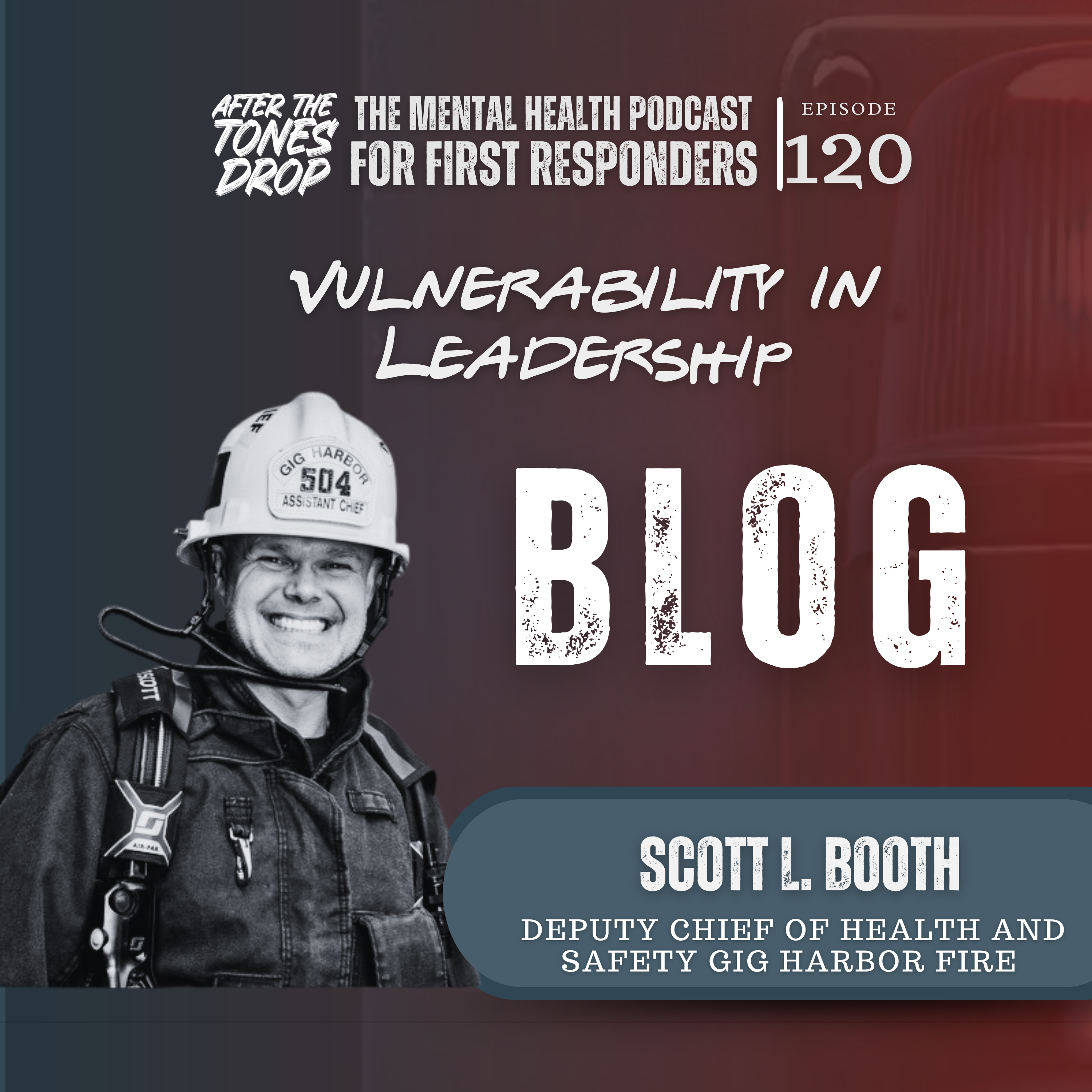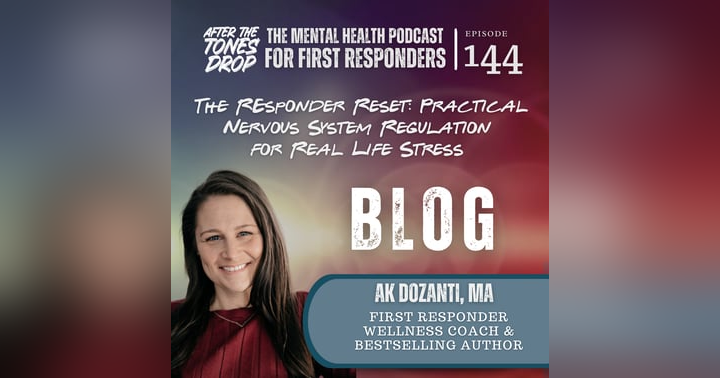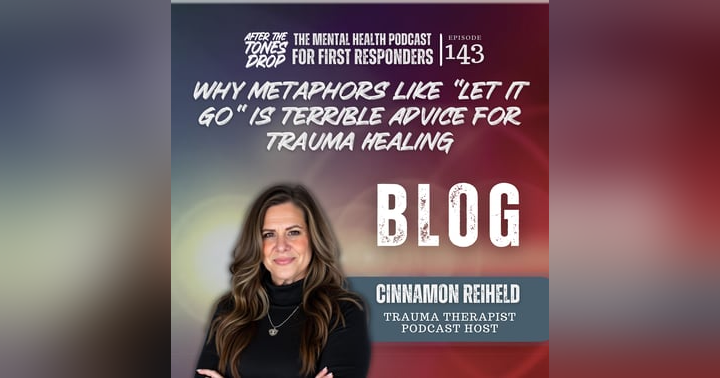Vulnerability in Leadership: Why It’s the Fire Service’s Untapped Superpower

Vulnerability in Leadership: Why It’s the Fire Service’s Untapped Superpower
What if the very thing you’ve been taught to hide as a leader—vulnerability—is the one thing your team needs most?
For decades, fire service culture has prized toughness, control, and silence. But as Scott L. Booth, Deputy Chief of Health and Safety and Peer Support Coordinator at Gig Harbor Fire and Medic One, shares in Episode 120 of After the Tones Drop, the future of leadership in the firehouse isn’t about being the hardest person in the room. It’s about being real.
Scott’s 35 years in the fire service—and his own lived experience of childhood adversity—taught him that authenticity, openness, and yes, even struggle, can transform teams from the inside out. Vulnerability in leadership isn’t weakness. It’s trust-building, resilience-shaping, and culture-changing.
Here are three truths from our conversation that every fire service leader needs to hear:
Shared Struggle Builds Stronger Teams
In firefighting, calls are the obvious shared experience. But the truth? Most of the job isn’t fires—it’s the downtime, the grind, the everyday challenges. Waiting for a big blaze to bond over means you’ll be waiting too long. Scott learned that the real glue for high-performing teams comes from creating opportunities to struggle together—inside and outside the firehouse. Whether it’s professional training, emotional growth, or life’s curveballs, shared struggle is where trust takes root.
Vulnerability Creates Connection, Not Risk
For many first responders, showing weakness feels dangerous. But Scott has seen the opposite: “Rarely in my experience does anyone take advantage of vulnerability and use it as a weapon.” Instead, being authentic—admitting you don’t have all the answers, letting people see behind the curtain—creates an atmosphere where your team knows you’re in it with them, not above them. That transparency fosters the kind of cohesion and resilience no policy or checklist can replicate.
Competence and Vulnerability Go Hand in Hand
Let’s be clear: vulnerability doesn’t excuse incompetence. As Scott says, “You can’t overshadow a lack of ability by just being fun to hang out with and vulnerable—competence is critical.” But when leaders pair technical ability with genuine openness, they model a version of strength that’s both human and dependable. That combination earns trust—and sets the tone for a culture where wellness and performance reinforce each other.
The Way Forward
If the fire service wants resilient officers, strong teams, and a culture that can withstand the weight of the job, we need leaders who are strong enough to be soft. Vulnerability in leadership isn’t a liability—it’s the lifeline.
Want to hear the full conversation with Scott L. Booth? tune into Episode 120 of After the Tones Drop
Because real leadership isn’t about being untouchable—it’s about being real.



